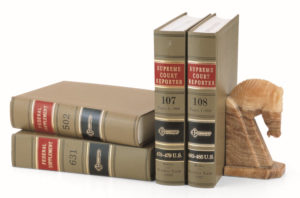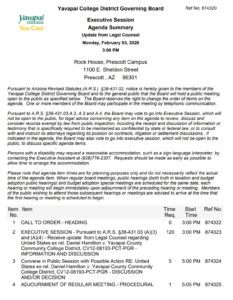Lawsuit alleges the Department of Education shared confidential student data with the Department of Government Efficiency (DOGE)
 Representing the University of California Student Association, Student Defense and Public Citizen Litigation Group filed a lawsuit against the Department of Education for sharing confidential student data with the so-called Department of Government Efficiency (DOGE).
Representing the University of California Student Association, Student Defense and Public Citizen Litigation Group filed a lawsuit against the Department of Education for sharing confidential student data with the so-called Department of Government Efficiency (DOGE).
The lawsuit alleges that on February 3, 2025, The Washington Post reported that DOGE staffers had gained access to multiple internal systems with the Department of Education, including a financial aid dataset that contains the personal information of millions of students enrolled in the federal student aid program. As a federal agency, the Department of Education is subject to the requirements of the Privacy Act of 1974, which makes the improper disclosure and misuse of sensitive personal and financial information unlawful. In addition, the Department’s records contain tax information protected by confidentiality provisions of the Internal Revenue Code.
According to the complaint, the Defendants have violated the Privacy Act, Internal Revenue Code, and Department regulations by allowing DOGE-affiliated individuals to access the Department’s data and the computer systems that house federal student financial aid information.
A copy of the lawsuit can be found by clicking the link below.
 Houston Community College System v. Wilson, No. 20-804, was a case decided by the US Supreme Court on March 24, 2022. It involved a dispute between the Houston Community College System (HCC), a public entity that operates various community colleges, and David Wilson
Houston Community College System v. Wilson, No. 20-804, was a case decided by the US Supreme Court on March 24, 2022. It involved a dispute between the Houston Community College System (HCC), a public entity that operates various community colleges, and David Wilson On November 2, 2021, the Arizona Supreme Court, after only two hours of deliberation, found that several provisions of the 2022 state budget, including a controversial ban on face mask mandates in K-12 schools, violate a provision of the state constitution requiring individual bills to encompass a single subject.
On November 2, 2021, the Arizona Supreme Court, after only two hours of deliberation, found that several provisions of the 2022 state budget, including a controversial ban on face mask mandates in K-12 schools, violate a provision of the state constitution requiring individual bills to encompass a single subject.  The parents of two University of Arizona students filed a class action lawsuit in federal court Friday, March 27 seeking refunds for room, board and fees from the body that oversees Arizona’s three public universities after classes moved online because of COVID-19. The lawsuit alleges breach of contract, unjust enrichment and conversion. The claims all result from students not receiving the services they paid for.
The parents of two University of Arizona students filed a class action lawsuit in federal court Friday, March 27 seeking refunds for room, board and fees from the body that oversees Arizona’s three public universities after classes moved online because of COVID-19. The lawsuit alleges breach of contract, unjust enrichment and conversion. The claims all result from students not receiving the services they paid for. The Yavapai Community College Governing Board met in secret on Monday, February 3, 2020 to discuss the status of the seven-year lawsuit by the former Community College Director of Aviation, Dan Hamilton, against Yavapai Community College, NorthAire, and Guidance Academy is that a trial has been set by the federal district court in Phoenix for late March or early April of 2020. Hamilton is a professional aviator, a veteran and a decorated former F-16 fighter pilot who served as a captain in the U.S. Air Force from 1997 to 2007. He reportedly started his job with Yavapai College in Sept. 6, 2011, and was terminated on or about May 31, 2012. (His claims are outlined in earlier Blog posts; see “lawsuits” index.)
The Yavapai Community College Governing Board met in secret on Monday, February 3, 2020 to discuss the status of the seven-year lawsuit by the former Community College Director of Aviation, Dan Hamilton, against Yavapai Community College, NorthAire, and Guidance Academy is that a trial has been set by the federal district court in Phoenix for late March or early April of 2020. Hamilton is a professional aviator, a veteran and a decorated former F-16 fighter pilot who served as a captain in the U.S. Air Force from 1997 to 2007. He reportedly started his job with Yavapai College in Sept. 6, 2011, and was terminated on or about May 31, 2012. (His claims are outlined in earlier Blog posts; see “lawsuits” index.) Discovery involving the six-year lawsuit between decorated air force veteran and former director of Yavapai Community College’s aviation program, Dan Hamilton, and the College and other defendants is heading for trial sometime in late March or early April. (See earlier posts in this Blog for complete information), In the meantime a process lawyers label “discovery” continues.
Discovery involving the six-year lawsuit between decorated air force veteran and former director of Yavapai Community College’s aviation program, Dan Hamilton, and the College and other defendants is heading for trial sometime in late March or early April. (See earlier posts in this Blog for complete information), In the meantime a process lawyers label “discovery” continues.